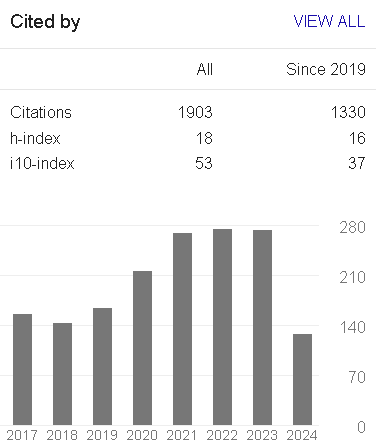Application of blockchain technologies, crowdsourcing and artificial intelligence in student training
Keywords:
network society, Russian higher education, crowdsourcing, blockchain, big date, collective intelligence technologies, artificial intelligenceAbstract
The article explored new needs in the higher education system in Russia in the context of global digitalization of society. The innovative possibilities of using the new social network technologies blockchain, big date, collective intelligence technologies, artificial intelligence in higher education were analyzed. Russian projects for their use in the practical activities of Russian teachers are considered. Based on the methods of system analysis, new guidelines in the training of specialists have been identified and characterized: the development of forms of collective creativity, participation in complex projects based on blockchain technologies, the involvement of initiative youth in the framework of crowdsourcing technologies, the development of individualized training based on artificial intelligence technologies. The modern Russian higher education system is striving to fulfill these needs, but at the moment, innovations are at the stage of pilot projects. There is a need for their wider development and mass adoption.
References
Hulme, G. and Goodchild, J. 2017. What is social engineering? How criminals exploit human behavior. Russia. SCO.http://www.csoonline.com/article/2124681/securityawareness/social-engineering-the-basics.html
Bechmann, G. 2010. Modern Society: Risk Society, Information Society, Knowledge Society. Moscow: Logos.
Beck, U. 2008. World at Risk. Cambridge: Polity Press.
Rosa, E. and McCright, A.2015. The Risk Society Revisited: Social Theory and Risk Governance. Philadelphia:Temple University Press.
Skorodumova, O., Matronina, L. and Skorodumov, B. 2019. Social network technologies as a transformation factor in modern vocational education. Opcion, 20, 213-232.
Castells, M. 2016. The Power of Communication. Moscow:Higher School of Economics Publishing House.
Castells, M. 2018. The Information Age: Economy, Society and Culture. Vol. 1. The Rise of the Network Society. Oxford: Blackwell Publishers.
Giddens, E. 2018. The Constitution of Society. Moscow: Academic Project.
Tapscott, D. and Tapscott, A. 2016. How the Technology behind Bitcoin is Changing Money, Business, and the World. New York: Penguin.
Botto, R. Crowdsourcing for Filmmakers (American Film Market Presents). London: Routledge, 2017.
Gloor, P. 2017. Swarm Leadership and the Collective Mind: Using Collaborative Innovation Networks to Build a Better Business. Bingley: Emerald Publishing Limited.
Evreeva, O. A.2018. Innovation in education: Goals and prospects. International Journal of Engineering and Technology, 7(4), 163-166.
Baumann, T., Harfst, S., Swanger, A., Saganski, G., Alwerfalli, D. and Cell, A.2014. Developing competencybased, industry-driven manufacturing education in the USA: Bringing together industry, government and education sectors, Procedia – Social and Behavioral Sciences, 119, 30-39.
Bowen, U. G. 2018. Higher Education in the Digital Age. Moscow: Publishing House of the Higher School of Economics.
Boroomand, Z., Momeni, M. and Torkashvand, M. H. 2016. Evaluating the Possibility of Establishing Knowledge Management in State Welfare Organization of Iran. UCT Journal of Management and Accounting Studies, 4(2), 7-15.
Kirillova, D. A., Maslov, N. S. and Astakhova, T. I. 2018. Prospects for the implementation of blockchain technology in the modern education system, International Journal of Open Information Technologies, 6(8), 31-37.
Howe, J. 2012. Crowdsourcing: Why the Power of the Crowd is driving the Future of Business. Moscow:Alpina Publisher.
Shutaleva, V., Tsiplakova, Yu. V. and Kerimov, A. A. 2019. Humanization of education in the digital era, Prospects for science and education, 6(42), 31-43.
Zubrilina, E. M. and Novikov, V. I. 2018. The use of crowdsourcing in the educational environment, Education and science in Russia and abroad, 8(43), 276-281.
Brockman, J. 2016. This Book Will Make You Smarter. New Scientific Concepts to Improve You’re Thinking. Moscow:AST.
Crawley, E., Malmqvist, J., Östlund, S., Brodeur, D. and Edström, K. 2014. Rethinking Engineering Education. The CDIO Approach. New York: Springer.
Kostenko, F. 2016. Crowdsourcing in education and its application in the Russian Federation. Proceedings of the Conference 10th “European Conference on Education and Applied Psychology”, Vienna, February 27, 40-46.
Downloads
Published
How to Cite
Issue
Section
License
Copyright (c) 2020 COMPUSOFT: An International Journal of Advanced Computer Technology

This work is licensed under a Creative Commons Attribution 4.0 International License.
©2023. COMPUSOFT: AN INTERNATIONAL OF ADVANCED COMPUTER TECHNOLOGY by COMPUSOFT PUBLICATION is licensed under a Creative Commons Attribution 4.0 International License. Based on a work at COMPUSOFT: AN INTERNATIONAL OF ADVANCED COMPUTER TECHNOLOGY. Permissions beyond the scope of this license may be available at Creative Commons Attribution 4.0 International Public License.


